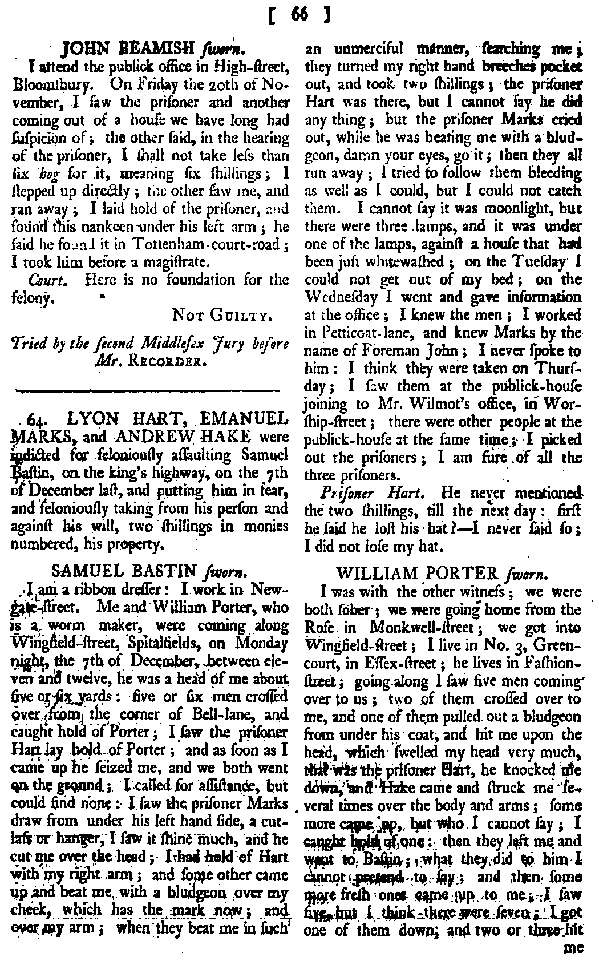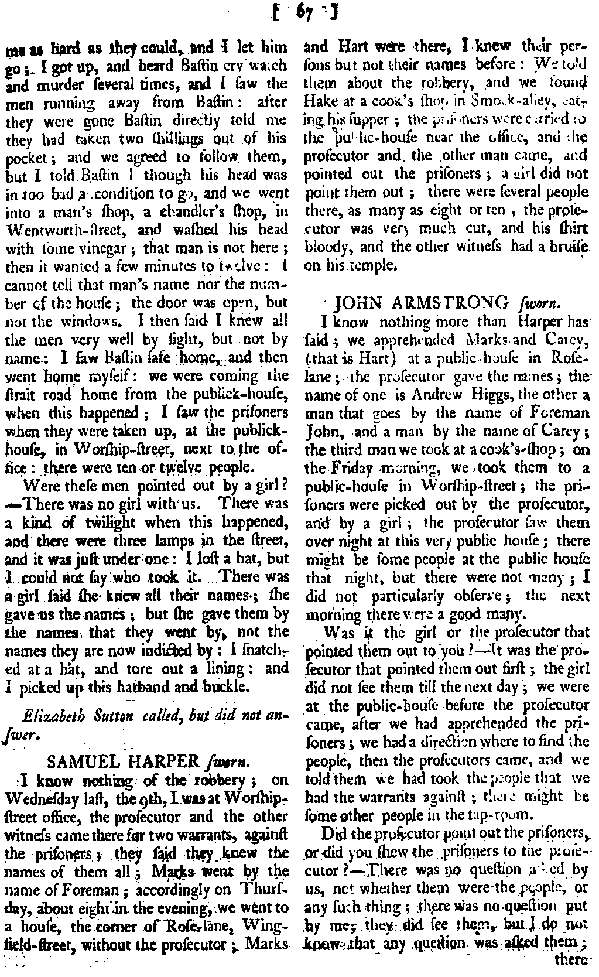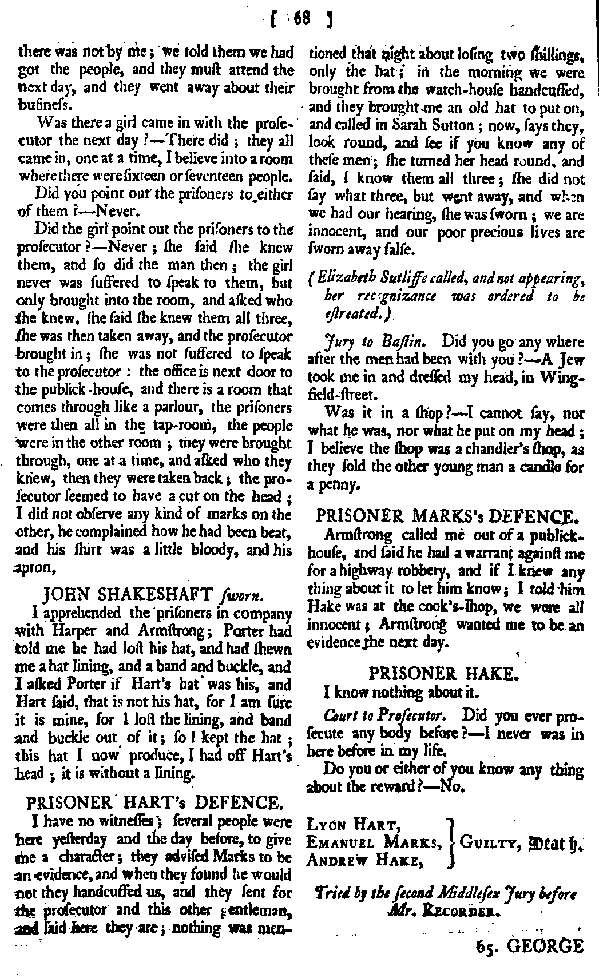This notice from December of 1789 records the death sentence of three men convicted of robbery, two of whom were Jews; Lyon Hart and Emanuel Marks. Them, along with Andrew Haikes were "all three little better than boys," and according to this report held out hope for mercy and were shocked when sentenced to death.
They were indeed executed by hanging on January 21, 1790. They had beaten and robbed a man named Samuel Bastin at cutlass-point of "two shillings in monies" -- less than $20 in today's money.
Here are the details and testimony in the case:






and how did the organized jewish community respond?
ReplyDeleteThere's no comparison of this case to current events, for many reasons.
ReplyDelete"Damn your eyes". Did you notice Bastin using that expression on page 66? I think I recall someone using the same expression in London of that time, when his feet were stepped on in a synagogue. it was in a blog you posted of a gentile visiting a shul.
DF
It's also in a Johnny Cash version of a traditional 19th century song, "Sam Hall." "I hate you one and all, damn your eyes!"
ReplyDeleteIt was a great English 18th century (and probably older) curse.
LoZ, I haven't found reference to any Jewish reaction (apart from the small mention of them meeting with a rabbi), but these cases weren't so rare. Judging by what one would expect from the Jewish community in England at the time, their response was probably no response, same as anywhere else. Besides, although it's ridiculously unjust to execute people for a mugging, there isn't a hint of discrimination here. Jews were probably just awfully glad they'd landed in England, where petty Jewish thieves would receive a trial by jury and be executed like any other petty thieves.
Damn your eyes! - Too late
ReplyDeleteIn a few years from now, someone might read this post and wonder, "did S. purposefully post this story on the same day that Martin Grossman was executed?"
ReplyDelete--Phil
Alternately, since I didn't mention Martin Grossman people probably wouldn't have realized anything about the day. In fact, that's what good historians do, they look for further context to put two and two together.
ReplyDeleteHowever, the point is moot since our comments both mention Martin Grossman, and are now linked to the post.